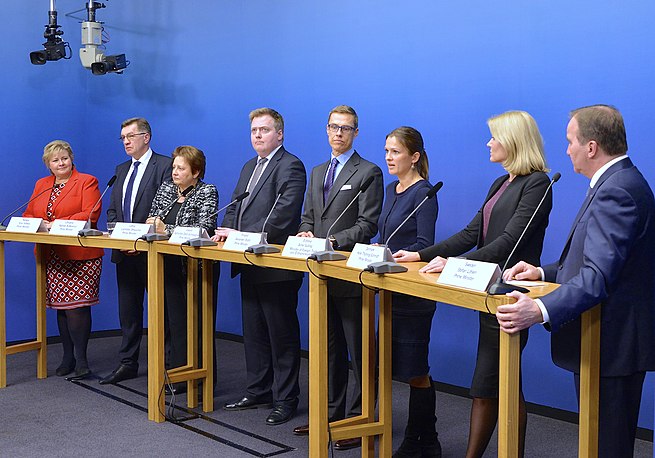
Main Difference
The main difference between Prime Minister and President is that the Prime Minister is a most senior minister of cabinet in the executive branch of government in a parliamentary system and President is a leader of a country or part of a country, usually in republics.
-
Prime Minister
A prime minister is the head of a cabinet and the leader of the ministers in the executive branch of government, often in a parliamentary or semi-presidential system. A prime minister is not a head of state or chief executive officer of their respective nation, rather they are a head of government, serving typically under a monarch in a hybrid of aristocratic and democratic government forms.
In parliamentary systems fashioned after the Westminster system, the prime minister is the presiding and actual head of government and head of the executive branch. In such systems, the head of state or the head of state’s official representative (often the monarch, president, or governor-general) usually holds a largely ceremonial position, although often with reserve powers.
In many systems, the prime minister selects and may dismiss other members of the cabinet, and allocates posts to members within the government. In most systems, the prime minister is the presiding member and chairman of the cabinet. In a minority of systems, notably in semi-presidential systems of government, a prime minister is the official who is appointed to manage the civil service and execute the directives of the head of state.
The prime minister is often, but not always, a member of the Legislature or the Lower House thereof and is expected with other ministers to ensure the passage of bills through the legislature. In some monarchies the monarch may also exercise executive powers (known as the royal prerogative) that are constitutionally vested in the crown and may be exercised without the approval of parliament.
As well as being head of government, a prime minister may have other roles or posts—the Prime Minister of the United Kingdom, for example, is also First Lord of the Treasury and Minister for the Civil Service. Prime ministers may take other ministerial posts. For example, during the Second World War, Winston Churchill was also Minister of Defence (although there was then no Ministry of Defence) and in the current cabinet of Israel, Benjamin Netanyahu at one point served as Minister of Communications, Foreign Affairs, Regional Cooperation, Economy, Defense and Interior.
-
President
The president is a common title for the head of state in most republics. In politics, president is a title given to leaders of republican states.
The functions exercised by a president vary according to the form of government. In parliamentary republics, they are limited to those of the head of state, and are thus largely ceremonial. In presidential and semi-presidential republics, the role of the president is more prominent, encompassing also (in most cases) the functions of the head of government. In authoritarian regimes, a dictator or leader of a one-party state may also be called a president.
-
Prime Minister (noun)
attributive form of prime minister
“Only having just won the election, he already had a prime-minister attitude.”
-
President (noun)
The head of state of a republic, a representative democracy and sometimes a dictatorship.
“The vast majority of presidents have been male.”
-
President (noun)
Primary leader of a corporation. Not to be confused with CEO, which is a related but separate position that is sometimes held by a different person.
-
President (noun)
A person presiding over a meeting, chair, presiding officer, presider.
-
President (noun)
obsolete form of precedent
-
President (adjective)
Occupying the first rank or chief place; having the highest authority; presiding.
